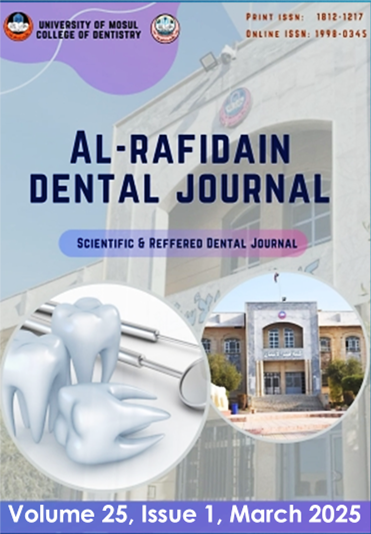Evaluation of bond strength between various types of fiber posts and resin cements: An in vitro comparative study
Abstract
Abstract: The current study aimed to compare the tensile bond strength (TBS) between different types of fiber posts and resin cement. Materials and methods: Sixty-three human lower premolars with similar root dimensions were randomly assigned to three groups, each consisting of 21 teeth belonging to a specific type of fiber post. The teeth were prepared by removing the coronal portion and mounted in acrylic blocks, leaving 2mm of the coronal tooth exposed. Endodontic therapy and post-space preparation were performed on the root canals of all specimens. The text describes a study where groups were divided into subgroups based on the type of resin cement used for luting fiber posts. Each subgroup consisted of 7 teeth. The bond strength between the fiber post and resin cement was measured using a universal testing machine, and the mode of failure was analyzed using a stereomicroscope. Results: The results of the study indicated significant differences among the groups and showed that the group using quartz fiber posts and RelyX U200 resin cement had the highest mean TBS (387.436.924), while the group using glass fiber posts and TOTAL C-RAM resin cement had the lowest mean TBS (176.293.039). Conclusion: The type of fiber post used in conjunction with a specific luting agent has an impact on the bond strength between the post and the resin cement. The study suggests that higher bond values can be achieved when using quartz fiber posts luted with RelyX U-200 cement. However, it is important to note that these findings are based on the limitations of the study.












